Days six and seven at the Karlovy Vary International Film Fest brought with them some of my most anticipated movies of the festival, and while not everything lived up to expectations, at least one film managed to exceed them. Check out my penultimate KVIFF dispatch, below.
WHITEWASH (Dir. Emanuel Hoss-Desmarais)
Grade: B+
A KVIFF highlight, and the latest in a string of strong, character driven films out of French Canada in recent years (see also: Incendies, Monsieur Lazhar, Café de Flore), is Emanuel Hoss-Desmarais’ debut feature, a mood-drenched quasi-thriller titled Whitewash.
The always magnificent Thomas Hayden Church has rarely given a better performance (or indeed, received this much well deserved screen time) than he does as Bob, an alcoholic widower who in the first sixty seconds of the film runs over a man with his snowplow. Information as to who this pedestrian was, whether he and Bob knew each other, and whether the killing was intentional or not, is revealed slowly, tentatively, via a series of intermittent flashbacks. But first, Bob just needs to get out of there.
After burying the body in the snow by the side of the road, our morally dubious hero flees into the surrounding woods, where he spends a bulk of the film fighting cold, hunger and the guilt of what he has done. Despite the barebones plot, however, the film is never boring: an atmosphere of intense isolation and paranoia, bolstered by the surroundings and a wonderfully distinctive score, hangs heavy over the film, only to be wryly thrown off its axis by moments of Coens-esque black comedy. The film has a distributor, so definitely keep your eyes peeled.
FRUITVALE STATION (Dir. Ryan Coogler)
Grade: B
Ryan Coogler’s much-hyped dramatisation of the last day in the life of Oscar Grant prior to his death at the hands of San Francisco Transit Police has already been written up twice on the site (one, two), so I’ll keep my thoughts relatively brief. Suffice it to say, the film does a good job tugging on the heartstrings, but its highly idealised depiction of Grant, all but a canonisation, is seriously heavy-handed (a scene in which he contemplates a return to his former life of crime, before resolutely dunking his drug stash in the ocean, is one of the more laughable moments of supposed drama that I’ve seen in quite a while).
In the end, Coogler is saved by his actors. Octavia Spencer is devastating as Grant’s mother, although the takeaway, by far, is the performance of Michael B. Jordon. All grown up since playing Wallace in The Wire, Jordan’s portrayal of the film’s tragic hero brims with sincerity, even when the screenplay does not.
A FIELD IN ENGLAND (Dir. Ben Wheatley)
Grade: A-
Director Ben Wheatley – Kill List, Sightseers – returns for his fourth film in as many years, with another surreal, gruesome, darkly comedic journey into the sinister English countryside, this time quite literally titled A Field in England.
Set in the 1600’s amidst the English civil war, the film follows four men – three soldiers and an amateur alchemist (Reece Shearsmith) – who abandon a battle, only to find themselves taken hostage by an Irish sorcerer (Wheatley regular Michael Smiley), who forces them to imbibe hallucinogenic mushrooms and dig for buried treasure.
Although certainly the directors most out-there work to date (a pre-film title card warns of the movie’s use strobing effects, and boy is it warranted) A Field in England is never the less unmistakable a Wheatley film. From the get go, the manner in which he shoots the countryside is absolutely mesmerising, the film’s striking black and white cinematography and jarring aural design only adding to the pervasive sense of foreboding. Kubrick has always been the most obvious influence of the directors’ unnerving aesthetic, and it’s never been more appropriate than here: a film of brooding atmosphere that eventually explodes into full-blown psychedelic madness.
And yet it’s all balanced out by the signature black humour, a blend of wordplay, profanity and quintessential Englishness, emphasised all the more by the era-specific dialogue (my favourite line: a diseased penis is referred to as having engaged in “too much venereal sport”). Absurd and frighting, (first one, then the other, then both at the same time) A Field in England won’t win over any detractors, but for fans of his earlier work it’s an absolute must see.
HELI (Dir. Amat Escalante)
Grade: C-
Even by unflinchingly brutal standards of films about the Mexican drug war, Amat Escalante’s Cannes competitor Heli is an extremely unpleasant film to watch. Light on plot but heavy on misery, the film begins with the public hanging of a young man who made the mistake of ripping off a local cartel, and only gets grimmer from there.
Heli already had a reputation coming out of Cannes, where Escalante won the best directing award for his minimalistic style, amidst controversy surrounding his film’s content. The reports, it turns out, have not been exaggerated: this is a shockingly violent film, although arguably less because of the suddenness or extremity of the violence – although it’s certainly both– and more because of how casually it’s depicted.
As traumatically memorable as such representations are, however, there’s not much of movie to support them. The film takes its title from the name of another young man, undeservingly caught up in the fallout from the theft. For one and hundred and five minutes, we watch him and family struggle in futility against misfortune, which befalls them without reason or meaning.
The fact is, the boundaries of the violence notwithstanding, there’s little on display here that we haven’t seen before. In an interview I conducted last year with Stephanie Sigman, star of the similarly themed but far more interesting Miss Bala, she referred to the growing disdain amongst the Mexican film community for stories about the drug trade. There’s little doubt that drugs are an ongoing problem for the country. But especially in the case Heli, the message feels mostly self-evident.
Closed Curtain (Dir. Jafar Panahi)
Grade: C-
Defying, for the second time, a twenty-year ban on filmmaking passed down by the Iranian government, Jafar Panahi’s latest project, shot in secret in his beachfront villa where he remains confined under house arrest, is an enigmatic meditation on the toll of personal confinement that unfortunately fails to connect.
Less overtly political from a narrative perspective (the film’s very existence is an act of dissent) than his powerful one man documentary This Is Not A Film, Closed Curtain is a fiction, or starts out as one anyway. Kambozia Partovi plays an unnamed screenwriter hiding out in his friend’s empty beach with his pet dog “Boy” after a government crackdown on canines (considered unclean by the Islamic regime). But his attempts to wait out the authorities are interrupted, first by the appearance of a pair of fugitive siblings, and then, surreally, by Panahi himself.
Panahi’s films (both pre and post arrest) have always been slow moving, but in this case the drama is stifled by obscurity. Characters, both real and fictional, speak cryptically, and it often feels as though the director doesn’t quite know what he’s trying to say (which would certainly be understandable if it were true). I have enormous sympathy for Panahi’s plight, and am glad he made Closed Curtain if for no other reason than working through his demons on screen seem to help him stay resilient. Suicide is a prevalent theme in the movie, and when a neighbour attempts to comfort the director by claiming “there’s more to life than work”, Panahi despondently replies “yes, but these things are foreign to me.”
Ultimately though, impenetrable and unengaging, Closed Curtain is a film where the baggage is more interesting than the content.

















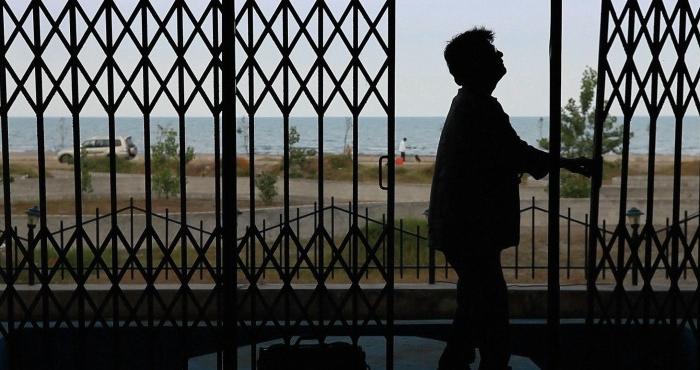
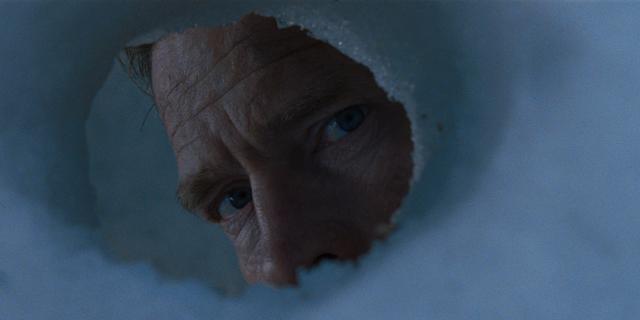
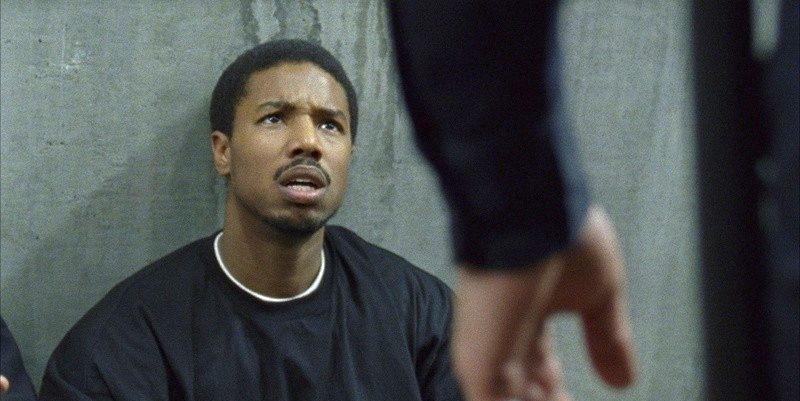
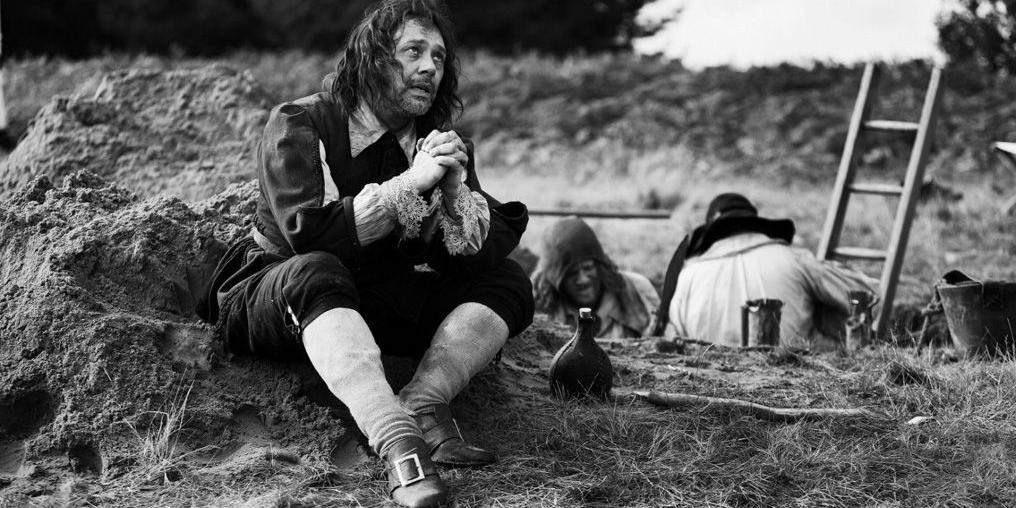
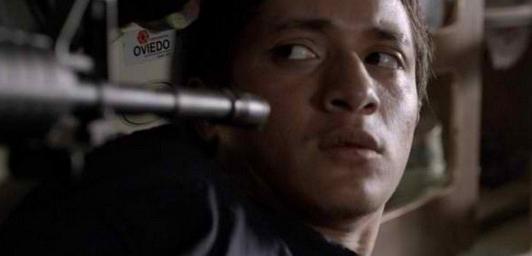
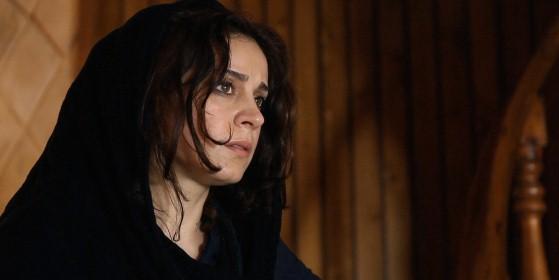
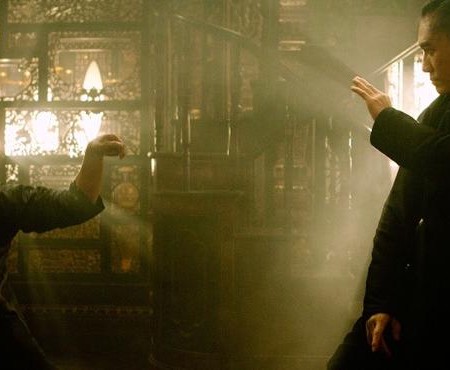
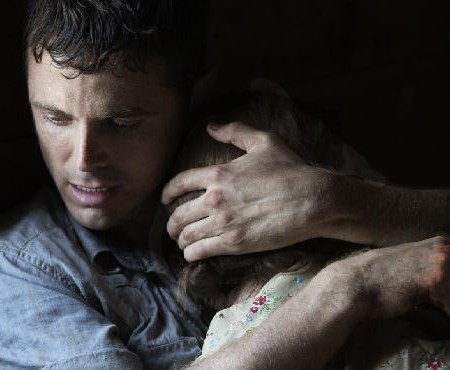
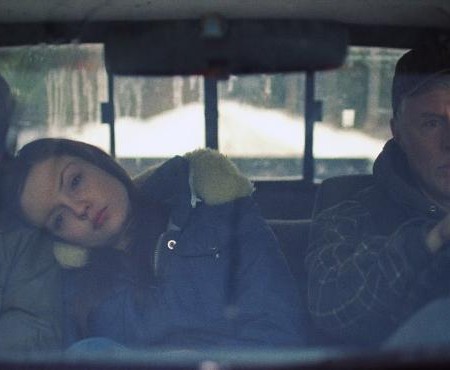
2 thoughts on “Wheatley Stuns While Panahi Stumbles, Plus ‘Fruitvale’, ‘Whitewash’ & ‘Heli’ At Karlovy Vary Days Six & Seven”
Enjoying all these reports Tom! And mentally making notes if/when these films come to TIFF. Keep ’em coming!
Thanks James! Really glad you enjoyed the reports. Some great films on offer, and KVIFF is definitely a festival I’d recommend visiting if you get the chance (just book accommodation early, otherwise you’ll end up staying an hour’s walk away from the centre of town like…um…a guy I know ended up having to do…)